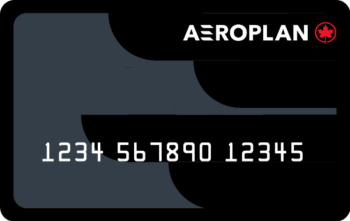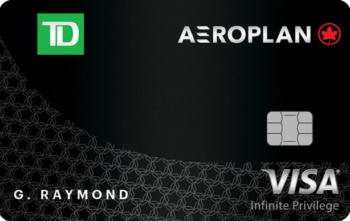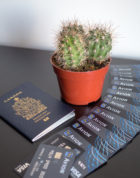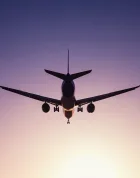Since COVID-19 was declared a pandemic in March, its effects have rippled through to pretty much every aspect of our daily life. For the travelling public and the travel industry, COVID-19 has had a particularly profound impact.
Like many of you, I have been closely following the battle between airlines and passengers over the right to refunds for cancelled flights. While there does not seem to be any vestige of a clear solution to this issue, there have been a number of developments over the past few months.
This post explores these developments and some of the present issues facing passengers and airlines as we approach the end of 2020.
In early July, Ricky produced a video that outlined the current state of affairs at that time. I encourage you to give it a watch and to subscribe to the Prince of Travel YouTube channel if you haven’t already done so.
Refunds Promised, Not Delivered
In late June, some airlines amended their refund policies to conform with flight cancellation laws in different jurisdictions. Enforcement bodies such as the Department of Transportation in the United States and various civil aviation authorities in the European Union made it very clear that passengers are indeed due refunds if the airline cancelled their flight.
Subsequently, some passengers with flights on Canadian airlines departing the European Union and/or the United States were promised refunds instead of vouchers for non-refundable tickets.
The issue here is that the refunds are taking a painfully long time to be processed. Whether due to staffing cuts and an incredibly large volume of work to be done, or to airlines desperately holding onto cash until it is pried out of their hands, people are being forced to wait months for the funds to be returned to the original method of payment.
Two people in my wife’s extended family had a round-trip booking between Warsaw and Toronto for the month of August on Air Canada Rouge. Their flights were cancelled and changed to be a round-trip from Frankfurt to Toronto instead, which obviously wasn’t going to work.
After receiving several canned responses about how they were out of luck, alongside some very sincere apologies for the inconvenience, I finally managed to get an agent who was aware of Air Canada’s then-recent decision to refund passengers for flights departing the European Union.
Soon after the phone call, they received refund receipts in their email, and we waited for the refund to appear on their credit card statement. This was at the end of July.
It is now the end of November, and last week I was told that refunds were being processed for flights that were set to depart at the end of June. So, we are continuing to wait for a refund that, under EU261 regulations, should have been provided within seven days.
Similarly, WestJet announced at the end of October that they will refund passengers for cancelled flights. While this certainly sounded like a welcome development for many, it appears that most will either be left behind or left waiting.

If WestJet cancelled a flight scheduled to depart up to October 31, you will be placed in a queue to be refunded at their leisure. Their website states that it will take many months to process the refunds, though, so it will likely be well into 2021 before passengers receive the promised refund.
This refund policy notably leaves out flights that were voluntarily cancelled by passengers and passengers with flights included in a vacation package. It will be interesting to see if these groups continue to be left stranded if/when the Canadian government fulfills its promise that any public funds given to airlines is contingent on passengers being offered refunds, which is discussed below.
It’s not just Canadian-based airlines that are dragging their feet. At the travel agency that I work for, we have been following up with many airlines about refunds. Some airlines have completely ceased communication, while others have random and at times, bizarre, systems for refunds.
While the initial onslaught of flight cancellations has long since passed, passengers continue to be affected by numerous flight cancellations for a host of reasons.
Bait and Switch?
If you have recently flown or if you plan to fly in the coming months, your itinerary is likely affected by a schedule change.
Each month, airlines assess flight loads and amend the upcoming schedule to suit the demand on each route. With a global travel advisory and mandatory quarantine upon return still in effect, and with provincial health officials encouraging people to travel domestically for essential purposes only, there aren’t nearly as many people travelling these days as there were in years past.
While some schedule changes are a minor nuisance, others have forced people to miss parts of their holidays or make added connections (sometimes overnight) on what was booked as a direct flight. Passengers are entitled to a refund for any flight cancellations for reasons within an airline’s control, but that fact seems to be lost on airlines who only offer vouchers for future travel.

This has led some to accuse airlines of deliberately scheduling flights that they know will not operate, and then holding onto passengers’ money when the flight gets cancelled.
I imagine that it would indeed be very difficult to prove beyond a reasonable doubt that airlines are doing this on purpose. I can’t see airlines admitting to such irresponsible behaviour voluntarily.
But the main reason that passengers aren’t being refunded for flights cancelled by airlines is because the Canadian Transportation Agency (CTA), whose mandate includes providing consumer protection for air passengers, is permitting this behaviour.
The CTA Doubles Down
Recall that the CTA issued a Statement on Vouchers in late March which appears to justify vouchers as “reasonable” given the current context.
Stories from consumers in pursuit of refunds for cancelled flights suggest that airlines, credit card companies, and insurance companies continue to reference this statement on vouchers when they deny refunds.
While many passengers and advocates have taken offence to the statement for a host of reasons, the agency has steadfastly stood by it and even recently fortified its stance on vouchers.
The CTA recently updated its statement on vouchers to include a clause stating that “the law does not require airlines to include refund provisions in their tariffs for flights that are cancelled for reasons beyond their control.” Advocacy groups, such as Canada’s very own Air Passenger Rights, were quick to point out that this appears to contradict federal, provincial, and relevant case law.
After contacting an airline to request a refund for a cancelled flight, and then receiving the inevitable hard no as a response, the CTA suggests that you file a complaint. They will then determine if the airline complied with the terms of its tariff and whether or not you are indeed due a refund.
As with the wait for refunds, you will likely have to wait for many months to come for the CTA to resolve your complaint. This is because they are still processing thousands of complaints from the period between December 2019, at which point the Air Passenger Protection Regulations fully came into effect, and March 2020, when COVID-19 was officially declared a pandemic.
At the end of October, the CTA had received over 10,000 complaints since mid-March. Given that each case is ruled on its own merits, I imagine that it will take a vast amount of time to sift through these complaints. This means that people who believe they are owed refunds will continue to be left in limbo, and airlines will still be hanging onto their cash.
Does this mean that there aren’t any inklings of hope left for refund-stranded passengers? No. There are a few methods brewing that may result in a long-awaited refund.
Strings Attached?
In early November, the federal government announced that any support for the airline sector would be contingent on airlines providing passengers with refunds for cancelled flights. Airlines have long called for industry-specific support, but this may not have been the news they were waiting for.
Talks between the federal government and airlines are ongoing, so at this time we don’t know the nature and quantity of strings will be attached to any government aid. It will be interesting, though, to see the result of the negotiations.
Will the Canadian government insist on some sort of return on their investment, akin to the German government’s 20% stake in Lufthansa in exchange for bailout cash? What will happen to passengers who voluntarily cancelled their bookings to adhere to the global travel advisory? Will airlines be offered a voucher for future credit as a taste of their own medicine?
Whatever the result of the negotiations, passengers will likely have to wait a considerable amount of time to see any sort of benefit. So, they may want to join others in actively pursuing their refunds via statutory chargeback.
Statutory Chargeback
Since March, I have followed the stories and information presented on the Air Passenger Rights Facebook group to get an idea of how people are battling for refunds. There are countless stories of long, arduous fights with airlines, credit card companies, and insurance policies over passengers’ rights to refunds for cancelled flights.
While some passengers have had success with credit card chargebacks, others have been disappointed to see credit cards eventually side with airlines. As mentioned above, the CTA’s statement on vouchers is an oft-cited reason for denial of refunds.
The latest method that I have noticed is the statutory chargeback. I am by no means a legal expert, but my understanding is that statutory chargebacks are governed by provincial laws rather than internal policies of banks or credit card issuers. So, there may be less wiggle room for credit cards and banks to deny you a refund for any particular reason of their choosing.
There is detailed information on statutory chargebacks on the Air Passenger Rights website. Should you find the information to be helpful, may I suggest considering a donation to the not-for-profit passenger rights entity. Gábor Lukács and his team work tirelessly to develop relevant information and assist passengers with air travel-related issues.
Class Action Lawsuits
Lastly, there are a number of class action lawsuits that have been initiated by passengers against Canadian airlines. This includes lawsuits based in Canada and the United States from passengers who are irate over how airlines have handled flight cancellations.
The class action lawsuits are very much in the early stages, and any meaningful result is likely years away, at best. In this regard, it is more likely that people will have received refunds associated with government bailout money or by pursuing chargebacks before they receive any sort of settlement from a class action lawsuit.
If any of the lawsuits is successful, it will again be interesting to see if airlines change their behaviour toward consumers as a result of the decision. I imagine that if passengers are victorious, it could only result in more passenger-friendly policies going forward, assuming that airlines aren’t bankrupted in the process.
Conclusion
Canadians’ battle against airlines for refunds for cancelled flights is far from over. Those who have been successful have not come by it easily, and this will continue to be the case for the foreseeable future.
While I personally don’t have any funds tied up in vouchers, I find the ongoing battle to be frustrating and fascinating at the same time. The David vs. Goliath interactions between passengers and airlines, financial organizations, and governmental bodies provide many angles and seemingly endless disputes.
I am hopeful, but not entirely optimistic, that the federal government and airlines will soon reach a deal that affords passengers the refunds they are deserved and the assistance that some airlines need. I am even more hopeful that we can return to safe and meaningful travel in the near future, with appropriate and enforceable protections for air passengers in place.
I imagine that many of you have stories of refund successes and setbacks in recent times. Please feel free to share your story below or in the Prince of Travel Elites Facebook group.




















